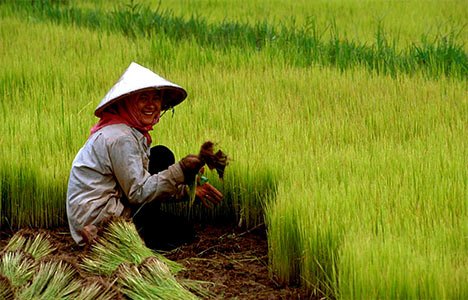
China was the original home of rice
Singapore: A study that employed large-scale gene re-sequencing to trace the origin of rice, through thousands of years of evolutionary history, has revealed that the cereal grain originated in China. The research was conducted by scientists at the Center for Genomics and Systems Biology and Department of Biology, New York University; Department of Biology, Washington University, St Louis; Department of Genetics, Stanford University; and Department of Agronomy, Purdue University; and was published in the latest issue of the Proceedings of the National Academy of Sciences (PNAS). The research was funded by a grant from the National Science Foundation Plant Genome Research Program. Previous research had suggested that domesticated rice had two points of origin, including India and China.
Although the Asian rice, Oryza sativa, has several varieties, two major subspecies of rice - japonica and indica - represent most of the world's varieties. Because rice is so diverse, its origins have been the subject of scientific debate. One theory-a single-origin model-suggests that indica and japonica were domesticated once from the wild rice O. rufipogon. Another-a multiple-origin model-proposes that these two major rice types were domesticated separately and in different parts of Asia.
In the PNAS study, the researchers re-assessed the evolutionary history, or phylogeny, of domesticated rice by re-sequencing 630 gene fragments on selected chromosomes from a diverse set of wild and domesticated rice varieties. They concluded that the two species have the same origin as they have a closer genetic relationship to each other. The investigators also used a 'molecular clock' of rice genes to see when rice evolved. Depending on how the researchers calibrated their clock, they pinpointed the origin of rice at possibly 8,200 years ago, while japonica and indica split apart from each other about 3,900 years ago.
The study has been co-authored by several eminent scientists such as biologist Michael Purugganan, NYU and Dr Barbara A Schaal, Mary-Dell Chilton Distinguished Professor of Biology at Washington University in St Louis.




